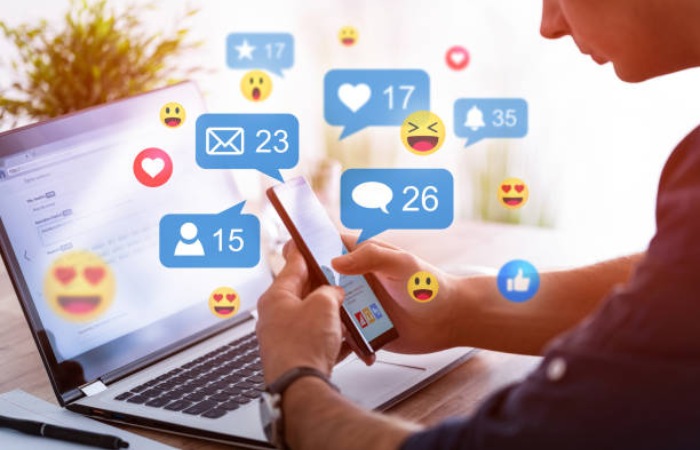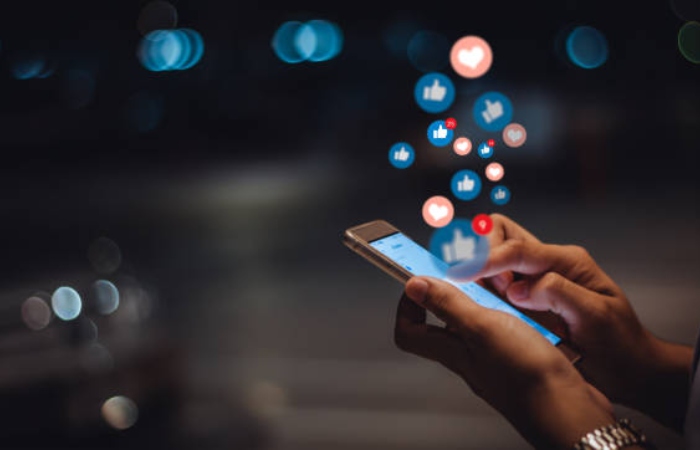Today, the influence of Social Media on our lives has grown. People are closely connected to social media through Instagram, Facebook, Twitter, and others. People are too attracted to social media as they use many applications. Children and adults use the press. They are interested. Through social media, they learn a lot about what is happening outside because of its advantages and disadvantages.
Benefits of Social Networks

Below, we present some of the benefits of social media.
Communicate Better And Get Closer To Those We Love
Thanks to social media, it’s now easier to reconnect with people we’ve lost touch with, like our old romantic partners, old school friends, and even distant relatives. Moreover, these platforms provide us an effective way to stay updated with the latest newscasts and updates from our loved ones.
During the COVID-19 outbreak, every social media platform has become a meaningful way to stay connected with our loved ones. How would we cope with the pandemic without the convenience of these tools to share information and connect with the people we miss every day?
Building New Relationships
Social media users can build new relationships and expand existing ones. Some people use social media to find romantic partners, while others use it to maintain friendships. Additionally, the social media effect can be used to ask for help in times of need or to find new job opportunities.
Social Network Marketing Helps Business Owners
Additionally, through social network marketing, many small businesses can get their offering in front of potential customers. So, this requires a social media marketing strategy. However, every social network has a target audience – active users who help create a social network strategy.
Break The Sadness
Loneliness is a widespread problem that affects the well-being of many people. Social networking apps and sites have provided some relief by filling a void in a relationship, but they can also worsen it if overused.
Cons Of Social Networks

Professional And Personal Life
Social platforms are significantly blurring the line between professional and personal life. When people share personal information on social networking sites, it becomes available to a broader audience, including potential employers and criminals who could be targeted for theft. It would be best to remember that online content may become publicly available, even with privacy settings. We must be careful about what we share online as it can significantly impact our personal and professional lives. Social network also affects pop culture.
Low Self-Esteem
Self-esteem noticeably decreased among people who actively used social networks, especially among teenage girls. Constantly comparing oneself to perfect images and people with an endless stream of extraordinary experiences makes it difficult for young people to develop their self-esteem.
Isolation And Radicalization
Popular social network can help ease grief but also contribute to increased isolation. For some people, communicating through a screen is more comfortable than communicating face-to-face. As a result, face-to-face interaction may gradually decrease until it ceases altogether, leading to a feeling of disconnection. In some cases, this isolation can pave the way for radicalization.
Conclusion
Social media has developed an integral part of our daily lives, influencing how we communicate, consume information, and interact with the world. It has revolutionized business, entertainment, education, and personal relationships, making global connections more manageable.
While social media offers countless benefits, such as instant communication, access to information, and marketing opportunities, it also presents tests, such as privacy concerns, misinformation, and impacts on mental health. Achieving a balance between productive use and conscious consumption is essential to harness its potential without negative consequences fully.
As technology evolves, social media will play an even more significant role in shaping culture, industries, and human interactions. The key is to use it intelligently, responsibly, and ethically to enhance our personal and professional lives.
Frequently Asked Questions
1. How has social media altered the way we communicate?
Social media has made communication instant, global, and interactive. It allows people to:
- Stay linked with friends and family, regardless of distance.
- Share your thoughts, opinions, and news in real-time.
- Interact directly with businesses, celebrities, and influencers.
2. What are the optimistic effects of social media?
- Connectivity: Helps people stay connected and build relationships.
- Access to information: Provides instant updates on news, trends, and events.
- Marketing and business growth: Helps brands reach and engage with their audiences.
- Education and learning: Offers online courses, tutorials, and knowledge sharing.
- Social movements and awareness: Drives activism and global conversations.
3. What are the adverse impacts of social media?
- Mental health issues: Increased anxiety, depression, and self-esteem issues.
- Misinformation: Spread of fake news and misleading content. Cyberbullying: Online abuse and negative interactions.
- Privacy concerns: Data security risks and exposure of personal information.
- Addiction and distraction: Excessive consumption reduces productivity and makes sleeping difficult.
4. How fixes social media affect mental health?
The extreme custom of social media can lead to:
- Comparison culture: Unrealistic standards of beauty and success.
- Dopamine addiction: Seeking validation through likes and comments.
- FOMO (fear of missing out): Anxiety about not being aware of events or trends.
- Sleep disruptions: Excessive screen time affects sleep quality.
5. How can we use social media responsibly?
- Set time limits for social media use. Verify information before sharing it.
- Follow accounts that promote positive and educational content.
- Avoid participating in harmful or toxic discussions online.
- Protect your data by adjusting your confidentiality settings.


